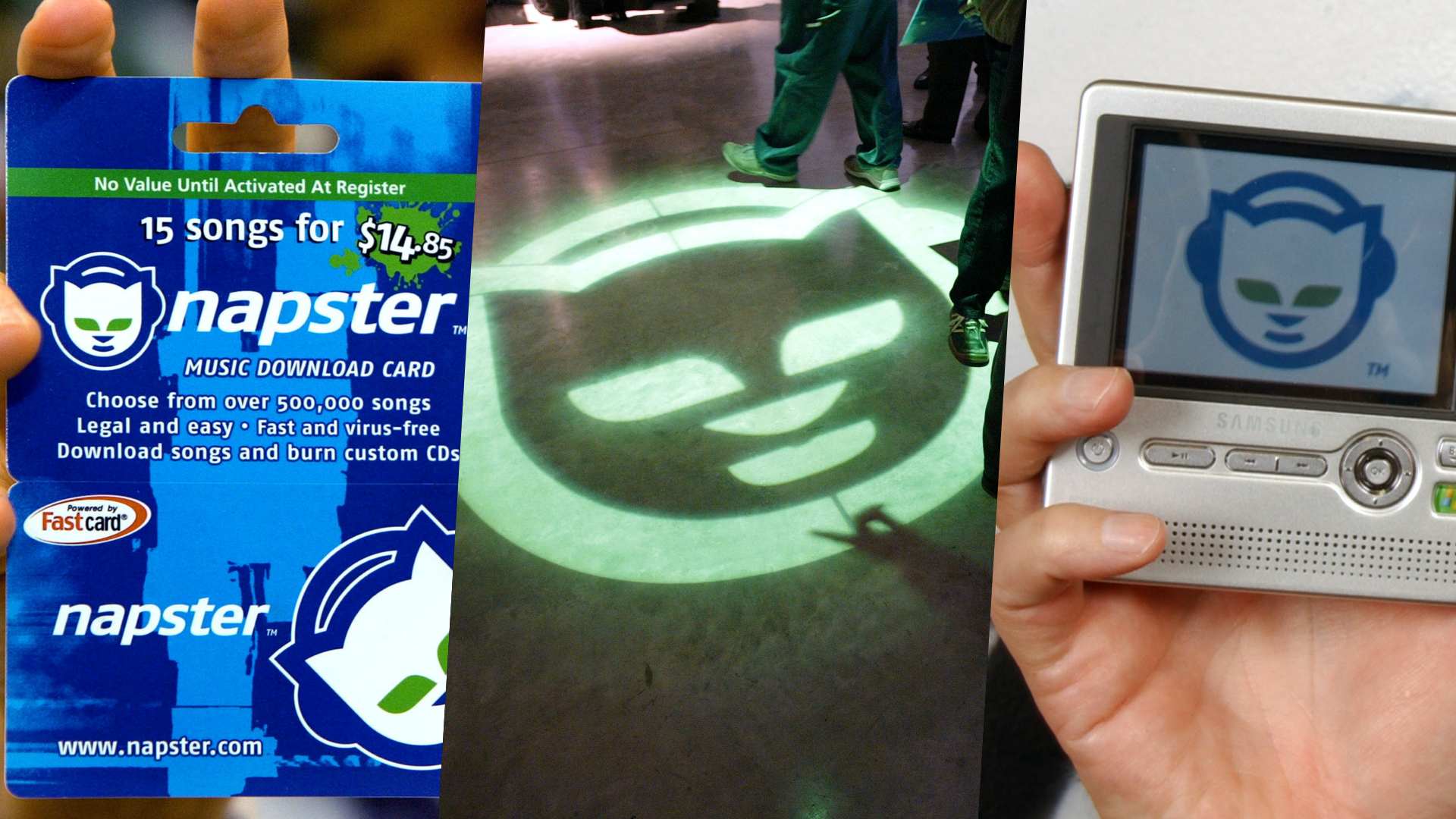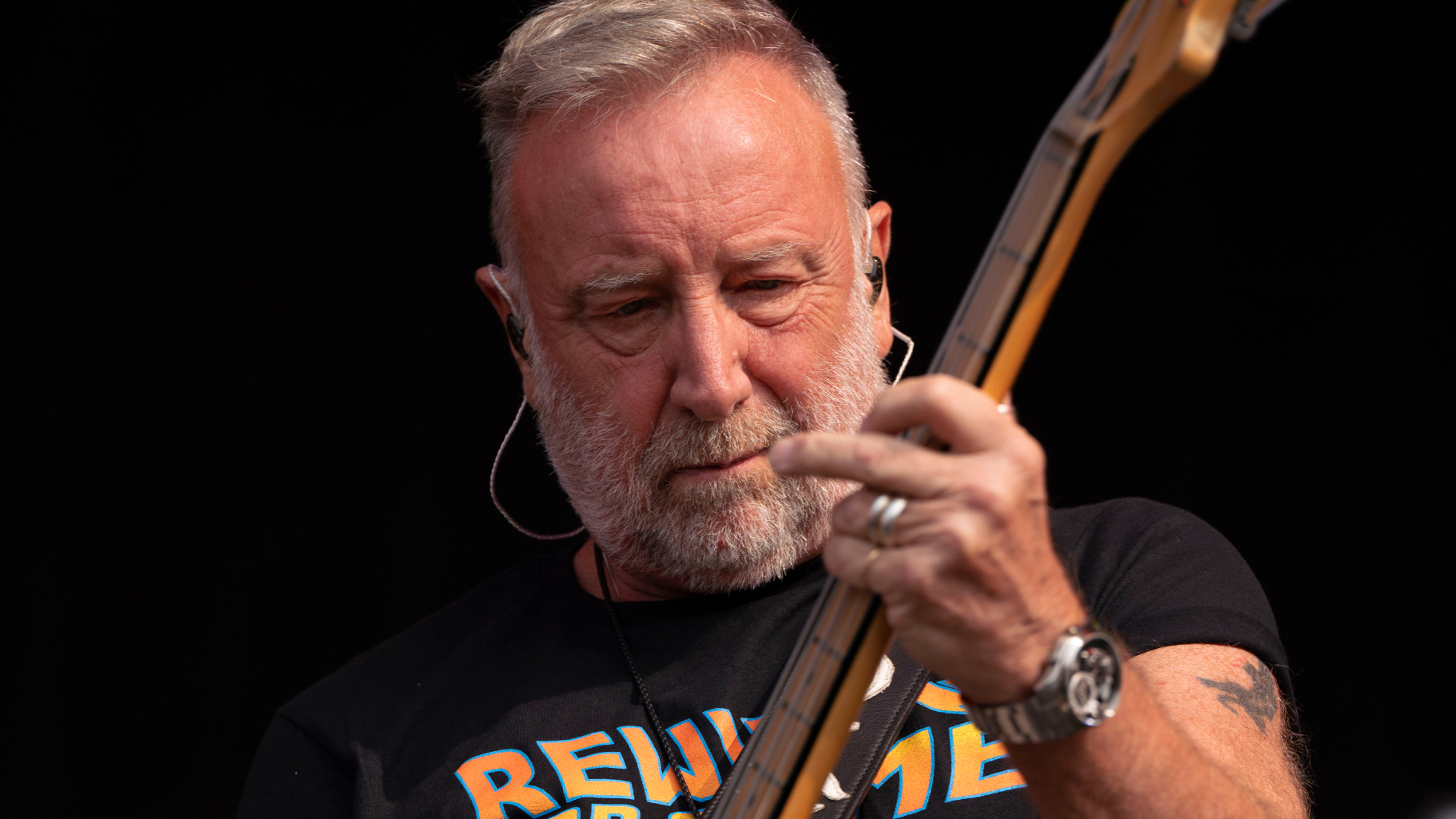Napster is back - again - in a new deal worth $207 million: “Napster revolutionized digital music - we’re ready to do it again”
Thought you’d seen the back of the file sharing service that almost killed music? Think again

Chances are that if you’re of a certain age and were sufficiently up to speed with the tech and able to spring for one of those new ‘broadband’ connections in the late 1990s, that you have fond memories of Napster.
And while the service itself may have slipped from ubiquity to illegality to obscurity since its turn-of-the-century high, it appears that that revolutionary, giant-killing brand is still, in some eyes, worth a small fortune.
Yes, once again, Napster ‘lives’ and is now the property of tech company Infinite Reality, "the home of digital experiences", in exchange for $207 million.
Napster’s new owners say they intend to turn the brand into a social-first music platform, aimed at letting fans engage with artists and their music more directly.
History repeating
Back in the day Napster quickly became the globally notorious method by which users of the early internet could lay bare their music collection and allow randoms from anywhere on the planet to pick it clean.
Peer-to-peer sharing, as it became known, went from something that was ‘technically possible’ on the nascent internet to ‘the number one reason to own a computer’ practically overnight.
Able to type in the name of a track or artist and have Napster search the entire planet before bringing in the results as MP3 downloads was something of a boon for music fans who, at that time, were enduring the misery of a draconian record business making billions from a small, carefully corralled group of artists by charging $20 for a CD just to get the one song that you wanted.
Get the MusicRadar Newsletter
Want all the hottest music and gear news, reviews, deals, features and more, direct to your inbox? Sign up here.
The arrival of Napster on the scene therefore triggered chaos: tens of millions of delighted music fans enjoying limitless, free (though totally illegal) music for a time and a record industry entirely caught on the hop, playing legal catch-up and licking its wounds close behind.
To say that Napster was something of a landmark upheaval therefore (one which changed the world of music completely, moving the business to the legal digital purchasing of services such as iTunes before emerging as today’s subscription-based streaming model) is something of an understatement.
Meanwhile, Napster, the cause of all the trouble, slid from a highly dubious college project to becoming a saleable ‘renegade’ brand for any company aiming to upset an apple cart.
MP3 service Rhapsody bought the brand in 2011, before floundering to make cash and realising that the only thing they owned that was worth anything was the Napster brand. Thus they changed their name to Napster back in 2016.
Virtual reality company MelodyVR then purchased Napster in 2020 for $70 million with the intention of using such a famous name to reinvent its VR live-streaming platform… before, in 2022, cryptocurrency companies Hivemind and Algorand bought Napster as a front for their Web3 and blockchain-based experiments.
Now, Infinite Reality – “an innovation company powering the next generation of digital media and e-commerce through extended reality (XR), artificial intelligence (AI), and other immersive technologies” – is Napster’s new owner.
So, by now, it’s safe to say that Napster has successfully been the front end of every up-and-coming, failure-to-launch, next-big-thing-that-never-happened, that you can imagine.
And with Infinite Reality having interests in such fields as the Drone Racing League and being the owner of esports teams playing League of Legends and Call of Duty (with metaverse and AI-powered customer services lurking in the background) it looks like Napster has, once again, found its perfect home.
"The ultimate music platform"
“I firmly believe that the artist-fan relationship is evolving, with fans craving hyper-personalized, intimate access to their favorite artists, while artists are searching for innovative ways to deepen connections with fans, and access new streams of revenue,” explained John Acunto, Co-Founder and CEO of Infinite Reality. “We’re creating the ultimate music platform where artists can thrive in the next wave of digital disruption.”
Joining Acunto will be Jon Vlassopulos, who joined Napster as CEO in 2022. Prior to heading up Napster, Vlassopulos was the head of music for the video game Roblox, where he helped pioneer their virtual concerts for artists such as Lil Nas X and Twenty One Pilots.
“Napster revolutionized digital music in the nineties, and now, with Infinite Reality, we’re ready to do it again,” Vassopulos said.
“Imagine stepping into a virtual venue to watch an exclusive show with friends, chat with your favorite artist in their own virtual hangout as they drop their new single, and be able to directly buy their exclusive digital and physical merch.
“With Infinite Reality’s expertise in immersive 3D technology, we will transform Napster into a next-generation platform where fans don’t just listen on their own – they experience music in entirely new ways.”
Daniel Griffiths is a veteran journalist who has worked on some of the biggest entertainment, tech and home brands in the world. He's interviewed countless big names, and covered countless new releases in the fields of music, videogames, movies, tech, gadgets, home improvement, self build, interiors and garden design. He’s the ex-Editor of Future Music and ex-Group Editor-in-Chief of Electronic Musician, Guitarist, Guitar World, Computer Music and more. He renovates property and writes for MusicRadar.com.
You must confirm your public display name before commenting
Please logout and then login again, you will then be prompted to enter your display name.
“These tariff actions will have a long-term effect on musicians worldwide”: The CEO of NAMM urges Trump to dump tariffs on components of musical instruments
“An incredible experience that went beyond just teaching music”: The UK’s biggest free music making weekend is extended to four days




![PRS Archon Classic and Mark Tremonti MT 15 v2: the newly redesigned tube amps offer a host of new features and tones, with the Alter Bridge guitarist's new lunchbox head [right] featuring the Overdrive channel from his MT 100 head, and there's a half-power switch, too.](https://cdn.mos.cms.futurecdn.net/FD37q5pRLCQDhCpT8y94Zi.jpg)





